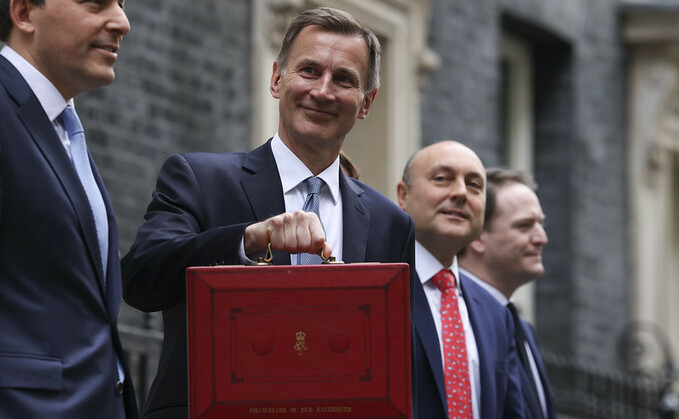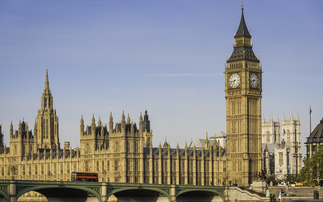
Chancellor Jeremy Hunt. Picture by Rory Arnold / No 10 Downing Street
Chancellor Jeremy Hunt has scrapped the lifetime allowance (LTA), increased the annual allowance (AA) and reformed the Money Purchase Annual Allowance (MPAA) as part of the 2023 Spring Budget.
The chancellor said the LTA charge would be removed from April 2023 before the LTA is abolished entirely from April 2024; the AA would rise from £40,000 to £60,000 and the MPAA would more than double from £4,000 to £10,000 from April 2023.
The government said the minimum tapered annual allowance (MTAA) would also increase from £4,000 to £10,000 from 6 April 2023.
The government said individuals will continue to be able to carry forward unused annual allowances from the three previous tax years - adding the adjusted income threshold for the tapered annual allowance will also be increased from £240,000 to £260,000 from 6 April 2023.
It said the maximum pension commencement lump sum for those without protections will be retained at its current level of £268,275 and will be frozen thereafter.
The move on pension allowances comes in a bid to tackle fears that the current allowances were compelling many professionals, particularly doctors, to retire in their fifties, an issue it said has become more acute since the government announced a six-year freeze on the annual and lifetime allowances in 2020.
HM Treasury said reforming the pensions lifetime allowance, annual allowance and money purchase annual allowance would encourage highly-skilled workers, such as senior NHS doctors, to remain in the labour market, and help to tackle NHS waiting lists.
In his speech, the chancellor said he did not want doctors or anyone else to retire early because of how the tax system works.
The Budget document added that, to increase retention in the workforce of the public sector, open and closed public service pension schemes for a given workforce would be considered linked for the purposes of calculating annual allowance charges, thus allowing members to offset any negative real growth for AA purposes in legacy public service pension schemes against the AA.
The LTA was originally set at £1.5m when it was introduced on A-Day in 2006. It gradually rose to £1.8m in 2010 but fell to just £1m in 2016. Upratings since then have seen the LTA grow to £1.073m.
The AA was originally set at £215,000 in 2006, rising to £255,000 in the 2010/11 tax year before being cut back. The MPAA was introduced in April 2015 at £10,000 before being cut to £4,000 from the 2017/18 tax year.
The pension issues facing higher earners
Pensions annual allowance statistics from HM Revenue and Customs (HMRC) show the extent of the issues that have been facing higher earning professionals such as doctors.
Its data showed that over 66,000 individuals reported pension contributions exceeding their annual allowance in the 2019/20 tax year - up from just 4,440 in 2012/13.
HMRC said the total value of allowance charges reported by the scheme through the accounting for tax returns scheme was £253m in the 2019/20 tax year compared to just £14m in 2012/13. It said the pension contributions exceeding the annual allowance reported through self-assessment rose from £95m in the 2012/13 tax year to £1bn in 2019/20.
A call for MPAA reform
The chancellor's decision to increase the MPAA will be a relief to the industry and comes after an industry coalition of some 17 industry firms and organisation sent a letter to HM Treasury calling for the allowance's urgent reform.
The signatories - which include Aegon, AJ Bell, the Association of British Insurers, Hargreaves Lansdown, the Pensions and Lifetime Savings Association (PLSA), Redington and The Investing and Saving Alliance (TISA) - calls for the MPAA to be increased from £4,000 to £10,000.
The letter, which was addressed to economic secretary to the Treasury Andrew Griffith, said that when the limit was reduced from £10,000 to £4,000 in 2017, it was solely to curb the risk of income tax avoidance and the level was intended to be kept under regular review - adding the rule was specifically intended not to affect those who accessed their pensions due to financial pressures such as divorce or redundancy.
However, it added the world was now a very different place compared to 2017, with the UK suffering a cost-of-living crisis - adding that many over 55s have tapped into their retirement savings and were now restricted in their ability to rebuild these savings.














